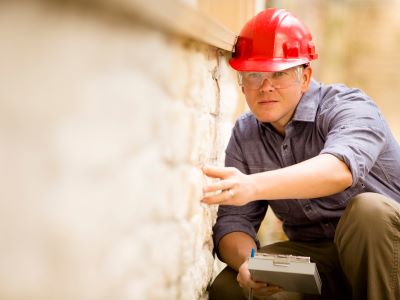A commercial building inspector looks at the entire structure of a building, from the top to the foundation. Before we jump right into the building inspection process, let’s first examine some essentials. A commercial building is any building or other structure that is located on a plot of commercial real land. These buildings are designed to generate income, whether it is through rental income or capital gains. The typical categories for commercial structures include offices, retail/restaurant buildings, multifamily houses, land, and other buildings. A commercial building inspector can be useful to asset managers in a variety of ways. As a first option, choose an architect or engineer. These individuals have a wide range of experience in construction, facility management, maintenance, and related industries. However, engineers and architects could charge more due to their specialisation and expertise. A backup option is to hire a commercial building inspector. Many people specialise in both business and residential inspections, but use caution. A house inspection is not the same as one for a company. A good choice is to use a firm that not only specialises in commercial inspections but also understands that commercial properties are a source of income, an expense of conducting business, and an asset for the organisation. Building inspection Adelaide professionals who have also had a successful career as builders will have the intimate knowledge required to verify those problem areas and ensure the construction is of a high calibre. You can also read this to gain more info.

A commercial building inspection’s objective is to:
Key considerations in the purchase of commercial real estate are ROI and residual value. Portfolio managers are thinking about two things: “How much will this cost?” same, “What would be the return on my investment?” In this case, an inspection is required. It shows the five primary building systems’ remaining lives: Roofing; soundness of the structure; and Electrical, Plumbing; ventilation, heating, and cooling (HVAC)
Real estate management businesses want to know if a change in the building’s function in the near future necessitates replacing the roof, the HVAC system, or the electrical components. A commercial property purchase is not only costly but also requires a great deal of consideration and research before a decision can be made. Investors, insurance lenders, portfolio lenders, and commercial mortgage-backed securities (CMBS) lenders regularly seek property condition assessments (PCAs) to learn more about a property or to get ready for a purchase agreement.
